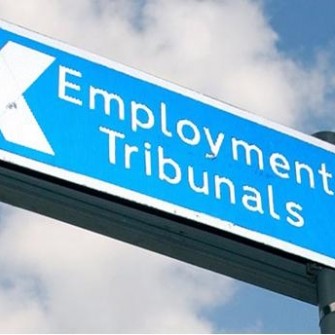Employment tribunal fees restrict access to justice, MPs say
A government select committee has concluded that employment tribunal fees, introduced in 2013, restrict access to justice for employees with legitimate grievances.
The Justice Select Committee, made up of cross-party MPs, called for some court fees, including for divorce, to be rescinded.
Employment tribunal fees of up to £1,200 were introduced in 2013 to subsidise the legal system, but have led to a 70 per cent decrease in the number of cases being brought. There has been a drop of 68 per cent in sex discrimination claims and 58 per cent in equal pay claims between the first three months of 2013 and the same period in 2015.
The report by the committee, released on Monday this week, said that a strong justification was required for the introduction of fees to recover or exceed the full cost of operation of the court.
Committee chair, Bob Neill MP, said: “Where there is a conflict between the objectives of achieving full cost recovery and preserving access to justice, the latter must prevail.”
The committee also said it was “unacceptable” that a review into the effects of employment tribunal fees is still unpublished, six months after it was due, and noted a “troubling contrast” between the speed at which the government introduced the fees in 2013, and its “tardiness” in completing an assessment of the controversial change.
Justice minister Shailesh Vara had said that ACAS early conciliation had dealt with 83,000 cases, which showed that access to justice had not been affected by the introduction of the fees, but the committee dismissed this argument as “superficial”.
But the committee said it was too early to tell whether the fees had caused a reduction in ‘vexatious’ claims, as the government had originally intended.
Gillian Guy, Chief Executive of Citizens Advice, said: “People are being priced out of challenging employers that dismiss them unfairly, discriminate against them, or withhold wages.
“Four in five people who we help with problems at work would be put off making a claim to an employment tribunal because of high fees. Many people would have to save for six months to afford fees of £1,200, and for some people the fees are higher than the amount they are claiming.
“The Justice Select Committee is right to highlight that at their current level employment tribunal fees put access to justice at risk. The government should use this opportunity to consider how they can make employment tribunals a more affordable option.”
The Law Society of England and Wales has called for the government to assess the impact of court and tribunal fee increases on access to justice.
Law Society President, Jonathan Smithers, said: “The courts are essential to a fair and just society, and must not be treated as a revenue generating enterprise for government. While it is not unreasonable to ask users to contribute to the costs of the courts they use, those costs should not fall solely on those who apply to the courts to uphold their rights.
“We should all be equal under the law, but there is a growing imbalance created by fee increases that places the courts out of reach for many small businesses and all but the wealthiest individuals in society, putting them at an unfair disadvantage in a justice system that increasingly favours the better resourced.”
Through UnionLine, members of GMB and CWU are able to make employment tribunal claims with the costs being covered by their union.

